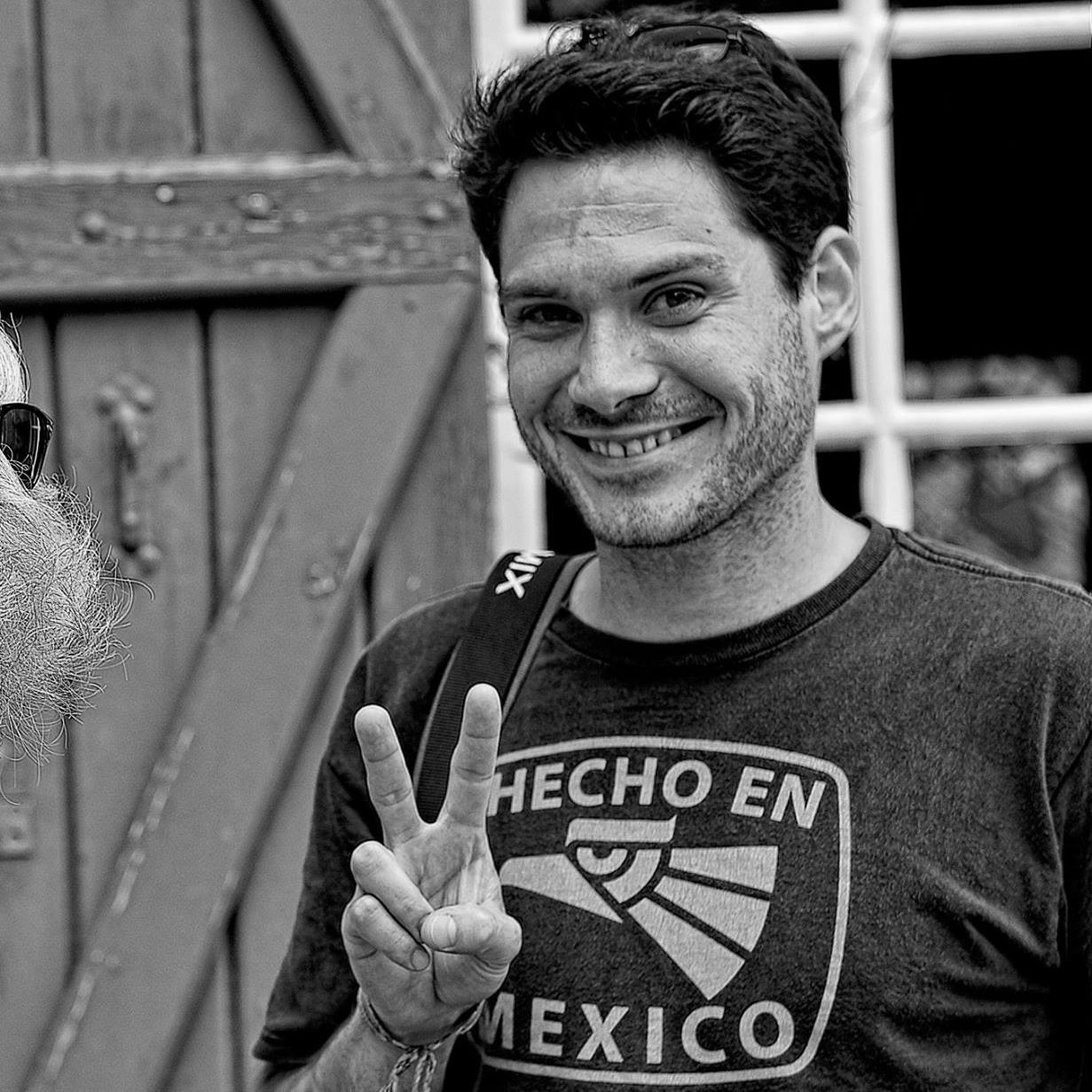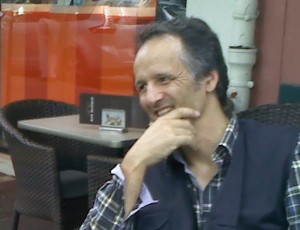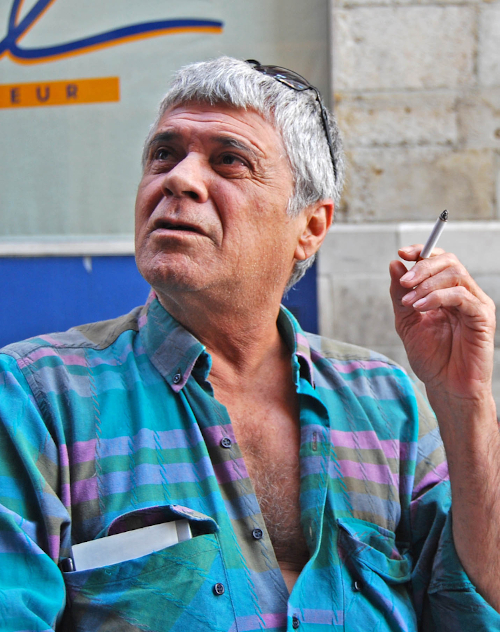Manuel Sorto – Producer, Director, Author and Production Coordinator
Born November 25, 1950 in Sensuntepeque, El Salvador. Film-maker, poet, writer, illustrator and theater man, Manuel Sorto has lived in Guatemala, Mexico and France. Since 1987 he resides in Bayonne, French Basque Country.Sorto begins his theater career in 1968 playing the role of Clov in Samuel Beckett’s Endgame. n 1969 he is a founder member of El Taller de los Vagos, a group that revitalizes the country’s theatrical culture. In 1970 he participates as a professor in the creation of the National Theater School in El Salvador, and a year later is named Director of the School. At the same time Sorto is member of the literary group Brigada La Masacuata, a movement of great vigor and relevance in El Salvador. (Indeed, one of its members, Eduardo Sancho, is a founder of the guerrilla movement and one of the five Commanders to sign the Peace Accords of 1992). In 1976 Sorto is offered a post as Assistant, and is later made Editor in AFI Centroamericana, a United States company producing advertising spots. AFI can offer him no further growth, and Sorto’s aspirations are artistic. He leaves AFI and starts a collaboration with the Salvadorian filmmaker Baltazar Polío. In 1979, together with Guillermo Escalón, ex-colleague in El Taller de los Vagos, he puts together a filmmaking team. The first project is a fiction short called La Zona Intertidal, about a political assassination. At the same time, the revolutionary upheavals of the country prompt Sorto and his colleagues to film the social-political events of the time. All the film negatives are developed and kept in Mexico, where later on Sorto, in exile, is to take charge of the edition and post-production processes. Two short films are made from this material: the fictional La Zona Intertidal, and a documentary called Morazán. For La Zona Intertidal the credits are left open (Sorto plays the murdered professor), and El Taller de los Vagos is named as the production company. Morazán is made clandestinely. Sorto and his production team work under the title: Colectivo Cero a la Izquierda. Both short films win prizes in the festivals of La Habana, Bilbao, Oberhausen o Leipzig and are selected for showing at the Quinzaine des Réalisateurs in Cannes. In 1981 Cero a la izquierda produces a feature length documentary called La decisión de vencer (los primeros frutos) which is awarded the Golden Dove at the 24th International Festival of Leipzig, the Grand Coral Prize at the 3rd Havana International Film Festival, and in 1982 won the Novaïs-Teixeira Prize awarded by the French Syndicate of Cinema Critics. As the Salvadorian government considers these films subversive Sorto’s exile becomes definitive. He enrolls in the CCC (Center for Cinematographic Capacitation) in Mexico City, and obtains a Diploma in Scriptwriting.
In 1987 he moves to France, working as Press Officer for the Biarritz International Film Festival, and as guest professor at the Audiovisual BTS of the Lycée René Cassin in Bayonne. From 1999 onwards he is in charge of “the starting point for reflection” in several shows produced by the dance company Androphyne.
Sorto has been member of the jury in Film Festivals such as the V Festival of New Latin American Cinema of Havana, the 25th Bilbao International Festival of Documentary and Short Film, and the 6th edition of FIPA (International Festival of Audiovisual Programs) in Cannes.
Published works include: Las Cabezas Infinitas (1971), Frutos para Ana (1973), El Huevo (1979), Operación Amor (1980), Arme y Desarme (1983), Mirrors of War (1985), Les Papiers d’Orléans (2007) He is a founder member of the magazine Aldiz.
Camilo Sorto-Cazaux – Producer, Author, Editor and multi-tasking Technician
 Born in Mexico City, April 29, 1986, of a French mother and Salvadorian father.
Born in Mexico City, April 29, 1986, of a French mother and Salvadorian father.At the age of 15 months he is taken to France and grows up in Bayonne, French Basque Country. There he finishes high school specializing in Literature with a Fine Arts option, going on to begin studying cinema at the Lycée Frédéric Mistral in Avignon. He travels extensively, first in France, living in Bordeaux, Paris and Toulouse, then in El Salvador, Guatemala and Mexico, finally settling in Toronto, Canada. He returns to France in 2011 to study Audiovisual BTS at the Lycée René Cassin in Bayonne, obtaining a Diploma two years later in Edition and Post-Production. At this point he begins to work full time on his first project, the feature length documentary: Sistiaga, a basque story, setting up the production company otroSfilms.
Sorto-Cazaux has published articles and short stories, and has exhibited drawings and paintings. He also works as a translator and is member of the editorial committee of the magazine Aldiz.
Xabi Hiriart – Producer, Chief Camera Operator
 Chief cameraman, film editor and filmmaker since 1990, Xabi Hiriart has participated in numerous productions relevant to Basque culture, such as: « Zazpiak bat » by Jean Pierre Gracet, « Ttipi Ttapa » by Nicole Alix about the “Korrika” (a bi-annual race held in the Basque Country); « EHZ: Spirit of a festival in the Basque Country » (Chief Cameraman) ; « Pastoral », « Basques Discoid Funeral Monuments » (filmmaker). He has filmed several live shows for Aldurrak Bideo, the most recent being « Animaleen Ihauteria » with the pianists Labéque sisters, « Roger IDIART OMENALDIA », and the dance show « Baküna Show ».
Chief cameraman, film editor and filmmaker since 1990, Xabi Hiriart has participated in numerous productions relevant to Basque culture, such as: « Zazpiak bat » by Jean Pierre Gracet, « Ttipi Ttapa » by Nicole Alix about the “Korrika” (a bi-annual race held in the Basque Country); « EHZ: Spirit of a festival in the Basque Country » (Chief Cameraman) ; « Pastoral », « Basques Discoid Funeral Monuments » (filmmaker). He has filmed several live shows for Aldurrak Bideo, the most recent being « Animaleen Ihauteria » with the pianists Labéque sisters, « Roger IDIART OMENALDIA », and the dance show « Baküna Show ».In 1993 he and a Basque compatriot create the production company Comedia, which develops audiovisual production on the Basque coast, becoming a local alternative for national and international TV companies, especially for EiTB.
In 2005 Hiriart creates EKIDE Productions and acquires state of the art equipment.
A great fan of contemporary art and music, Xabi Hiriart is always willing to participate in any new project, however demanding, however unorthodox.
